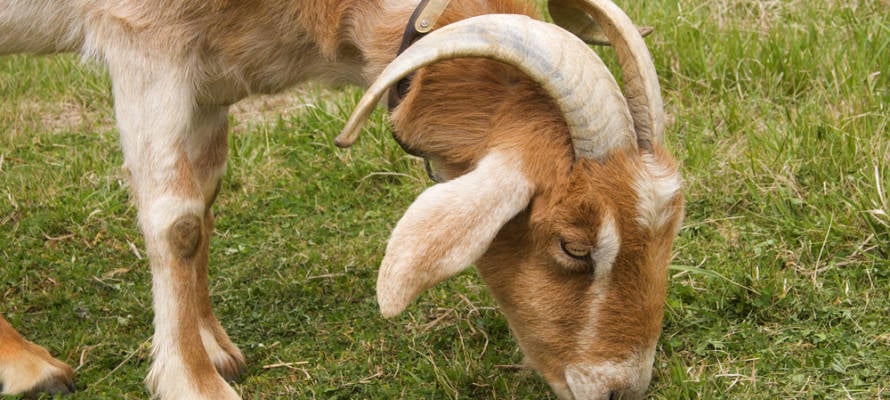Until Jacob, no one in history had ever built huts for their cattle! Until then, cattle had to brave the elements. Whether it was hot or cold, dry or rainy, the cattle were simply always outdoors, always exposed.
by Rabbi Ari Enkin
Rabbinic Director, United with Israel
The sages teach us that each of the three Torah festivals correspond to one of the three Patriarchs.
Passover corresponds to Abraham. This is because it was on Passover that the angels came to visit him following his circumcision – and what did he feed them? Matzot!
The holiday of Shavuot (Pentecost) corresponds to Isaac. This is because the shofar –a ram’s horn– was blown when the Torah was given at Mount Sinai, which recalls the ram that was sacrificed in place of Isaac during the Akeida episode – the story of his binding and near-sacrifice.
Patriarch Jacob: First Person to Build Huts for Cattle
Finally, Sukkot corresponds to Jacob, because a city that Jacob once visited was named Sukkot, as it says: “…and for his cattle he made little huts (“Sukkot”), therefore they called the name of the place Sukkot.
It is noted that regarding Abraham and Isaac, the parallels between these two forefathers and the holidays that they represent make a lot of sense, as each of these festivals represents their primary characteristics, their essence. Abraham’s essence was kindness, which can be seen in his desire to feed the angels matzot (unleavened bread for Passover) and other provisions, notwithstanding his great pain following his circumcision. Isaac’s essence was self-sacrifice, which is evident by his willingness to be sacrificed on the altar, as God had had seemingly desired. Observing the Torah, which was given on Shavuot, also requires self-sacrifice. Here, too, the connection is quite clear.
Regarding Jacob, however, how does the fact that Jacob built huts for cattle correspond to Jacob’s essence? Does it make sense that the city was named “Sukkot” just because Jacob built some huts for his cattle? What was so remarkable about building huts that the city should be named after them?
Jacob the Revolutionary
The connection between Jacob and the holiday of Sukkot is not as readily apparent.
The answer is that indeed, there is something very remarkable and revolutionary in what Jacob did: He was the first to do so! That’s right! Until Jacob, no one in history ever built huts for their cattle! Until then, cattle had to brave the elements. Whether it was hot or cold, dry or rainy, the cattle were simply always outdoors, always exposed. Jacob changed all that. Jacob taught the world to care for their animals. To commemorate this precedent-setting endeavor, the city was forever named “Sukkot.”
The essence of Jacob was exactly what the huts that he built for his cattle represented: Appreciation. An appreciation that extends even to our animals who have no choice but to fulfill our every demand. Nevertheless, we still have to show appreciation even to them. Jacob realized that these sheep were essentially responsible for his livelihood. As such, he teaches us, our appreciation must extend even to the sheep. In fact, it is also worth mentioning that it was Jacob who told his son Joseph to “Please go check on… the welfare of the sheep…” [Genesis 37:14]. Jacob’s concern for animals was a lifetime mission.
We can derive an important lesson here. Showing appreciation is not necessarily for the sake of the person who did the favor…it is for the sake of the beneficiary of the favor. The Torah teaches us that we must show appreciation for anything that assisted us in any way. We even see this attribute with Moses, who refused to strike the Nile River as part of the first two plagues that God sent upon Egypt because the Nile had protected him when he was a vulnerable baby floating on the water.
This is the essence of Jacob and his deep connection to the holiday of Sukkot. Jacob didn’t build huts so that his sheep would grow more wool or get fatter and thereby become more valuable. He built the huts simply because it was the right thing to do. Sukkot is the holiday of Jacob, the holiday when we show our appreciation to God for taking us out of Egypt. We show that appreciation by sitting in a sukkah (hut/booth), shaking the Lulav (palm branch) and Etrog (citron) bundle (“The Four Species”), and eating delicious holiday meals with our families!

Do You Love Israel? Make a Donation to Show Your Support!
Donate to vital charities that protect Israelis and help inspire millions around the world to support Israel too!
Now more than ever, Israel needs your help to fight and win the war -- and also the battle of public opinion.
Anti-Israel bias and boycotts are out of control. Israel's enemies effectively use social media to incite brutal terror against innocent Israeli civilians. Please help us fight back!




